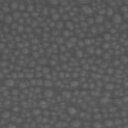Salvianolic acid A, a matrix metalloproteinase-9 inhibitor of Salvia miltiorrhiza, attenuates aortic aneurysm formation in apolipoprotein E-deficient mice.
Keywords
Abstract
Aortic aneurysm (AA) is a life-threatening vascular disease in defect of effective pharmaceutical therapy. Matrix metalloproteinase-9 (MMP-9) is implicated in the development of chronic vascular diseases including aneurysm, but the effective MMP-9 inhibitors are far from development. To develop new candidate for AA therapy, we evaluated the efficiency of salvianolic acid A (SalA), a novel MMP-9 inhibitor, on AA progression in a mouse model and characterized the mechanism of action. SalA is a water soluble compound of the herbal drug Rhizoma Salviae miltiorrhizae (Danshen) which in China is widely used for the treatment of hypertension, coronary artery diseases and myocardial infarction. MMPs activity was evaluated by enzyme kinetic analysis in vitro and in-gel gelatin zymography in vivo. SalA showed selectivity on gelatinase (MMP-2 and MMP-9) than on collagenase (MMP-8 and MMP-13) in vitro, and specificity on MMP-9 than MMP-2 in vivo. Aortic aneurysm was induced by angiotension II (AngII) in apolipoprotein E-deficient (ApoE(-/-)) mice. Aortic structure was evaluated by hematoxylin and eosin, picrosirius red, orein stain. Macrophage infiltration was detected by immunohistochemistry in vivo and transwell in vitro. Comparing with doxycycline (Dox), a well-known MMPs inhibitor, SalA showed similar efficiency against AA progression. SalA significantly decreased aortic diameter and aneurysm severity, ameliorated integrity of vascular structure, inhibited elastin fragmentation and macrophage infiltration. Furthermore, SalA showed greater safety than Dox based on hepatotoxicity evaluation. Our results demonstrated that SalA held great potential for AA therapy.






